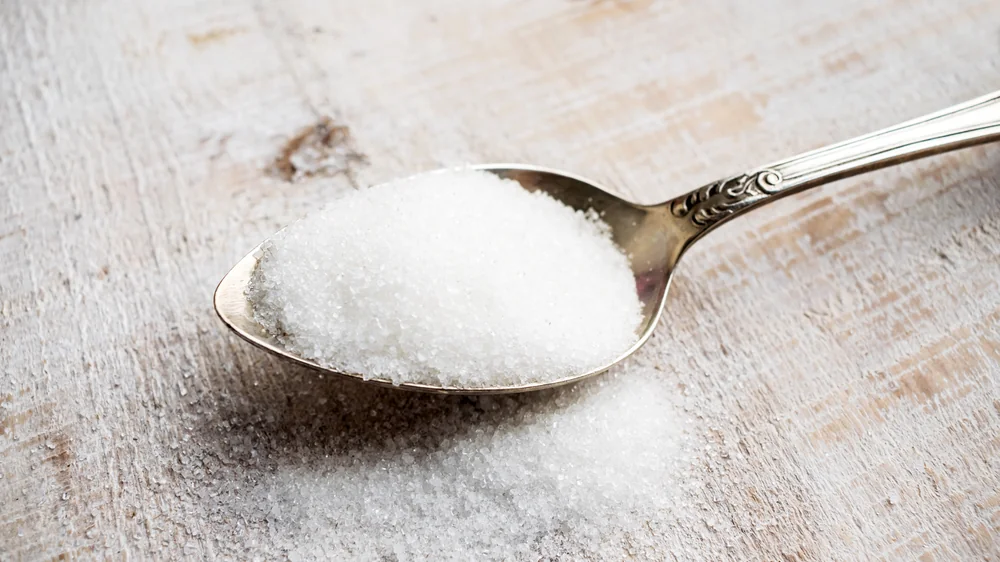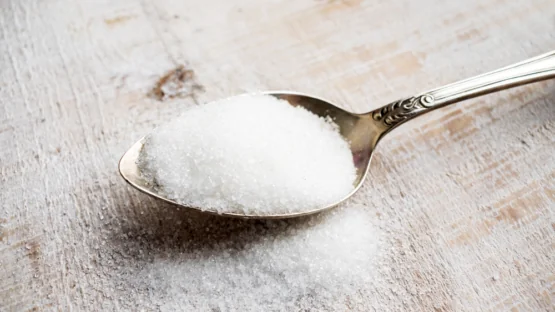Researchers publishing in Journal of Toxicology and Environmental Health, Part B have found that the common sweetener sucralose may contribute to genetic and intestinal damage [1].
Not the only study of this kind
This paper begins by stating the fundamental claims that were made prior to the approval of sucralose by the FDA. Those claims were that it does not change in the intestine, it does not affect the gut microflora nor the intestinal wall itself, and it does not accumulate in the body, affect metabolism, nor affect the genome.
The authors of this paper hold that all of those claims are false, citing studies that show the negative effects of an acetate metabolite of sucralose (sucralose-6-acetate) [2], the effects of sucralose on human gut flora [3], and damage to the intestinal barrier [4] along with bioaccumulation [2] and genetic damage [5] in different populations of rats. Metabolic changes [3] were also discovered, and heating sucralose in the presence of other compounds can cause known toxins to form [6].
With these alarming studies in hand, these researchers performed their own experiments to more closely examine these results.
Effects in some areas
Some of the experiments returned results that were generally inconclusive. For example, sucralose and its metabolite were not found to mutate DNA in bacteria.
However, mutation is just one of many kinds of genetic damage. In one assay, sucralose-6-acetate was found to significantly enhance the level of γH2AX, a marker of double-strand DNA breaks, at levels far below its normal concentrations in food products.
Similarly, the number of micronuclei, which represent bits of DNA that are separated from the main nucleus, was found to be increased in mammalian cells. Therefore, according to these researchers, sucralose-6-acetate encourages DNA to break, making it a genotoxin.
RNA sequencing offered more bad news. In transverse colon tissue, sucralose and its acetate metabolite are associated with an increase in expression in genes related to oxidative stress, inflammation, and cancer. Using a measurement of electrical resistance, this study found that tight junctions, which prevent excessive intestinal permeability (leaky gut), were significantly loosened by sucralose-6-acetate.
Assessing the danger
If these researchers’ analyses and conclusions are correct, sucralose and its acetyl metabolite do indeed have severe negative effects on human beings, and intestinal inflammation and genomic instability are both strongly associated with aging. As this is a sweetener that has been in common use for some time, longitudinal studies can be performed to determine whether or not its consumption is associated with the negative effects found in this study. It may also be worth the time and cost to determine if frequent sucralose consumers are older according to epigenetic clocks.
Literature
[1] Schiffman, S. S., Scholl, E. H., Furey, T. S., & Nagle, H. T. (2023). Toxicological and pharmacokinetic properties of sucralose-6-acetate and its parent sucralose: in vitro screening assays. Journal of Toxicology and Environmental Health, Part B, 1-35.
[2] Bornemann, V., Werness, S. C., Buslinger, L., & Schiffman, S. S. (2018). Intestinal metabolism and bioaccumulation of sucralose in adipose tissue in the rat. Journal of Toxicology and Environmental Health, Part A.
[3] Méndez-García, L. A., Bueno-Hernández, N., Cid-Soto, M. A., De León, K. L., Mendoza-Martínez, V. M., Espinosa-Flores, A. J., … & Escobedo, G. (2022). Ten-week sucralose consumption induces gut dysbiosis and altered glucose and insulin levels in healthy young adults. Microorganisms, 10(2), 434.
[4] Abou-Donia, M. B., El-Masry, E. M., Abdel-Rahman, A. A., McLendon, R. E., & Schiffman, S. S. (2008). Splenda alters gut microflora and increases intestinal p-glycoprotein and cytochrome p-450 in male rats. Journal of Toxicology and Environmental Health, Part A, 71(21), 1415-1429.
[5] Raya, S. A., Aboul-Enein, A. M., El-Nikeety, M. M., Mohamed, R. S., & Abdelwahid, W. M. (2020). In Vivo comet assay of food additives’ combinations and their effects on biochemical parameters in albino rats. Biointerface Research in Applied Chemistry, 24, 9170-9183.
[6] Eisenreich, A., Gürtler, R., & Schäfer, B. (2020). Heating of food containing sucralose might result in the generation of potentially toxic chlorinated compounds. Food chemistry, 321, 126700.




